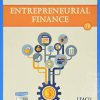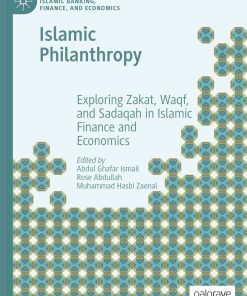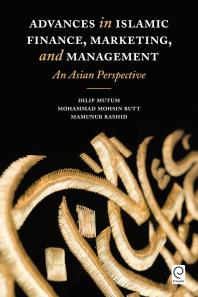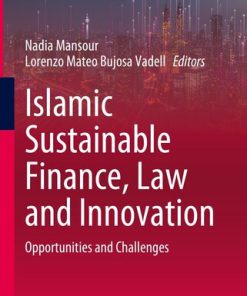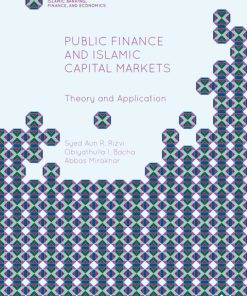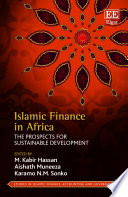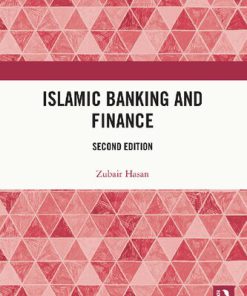Blockchain Fintech and Islamic Finance Building the Future in the new Islamic Digital Economy 2nd Edition by Hazik Mohamed, Hassnian Ali 3110745143 9783110745146
$50.00 Original price was: $50.00.$25.00Current price is: $25.00.
Blockchain Fintech and Islamic Finance Building the Future in the new Islamic Digital Economy 2nd Edition by Hazik Mohamed, Hassnian Ali- Ebook PDF Instant Download/Delivery: 3110745143, 9783110745146
Full dowload Blockchain Fintech and Islamic Finance Building the Future in the new Islamic Digital Economy 2nd Edition after payment
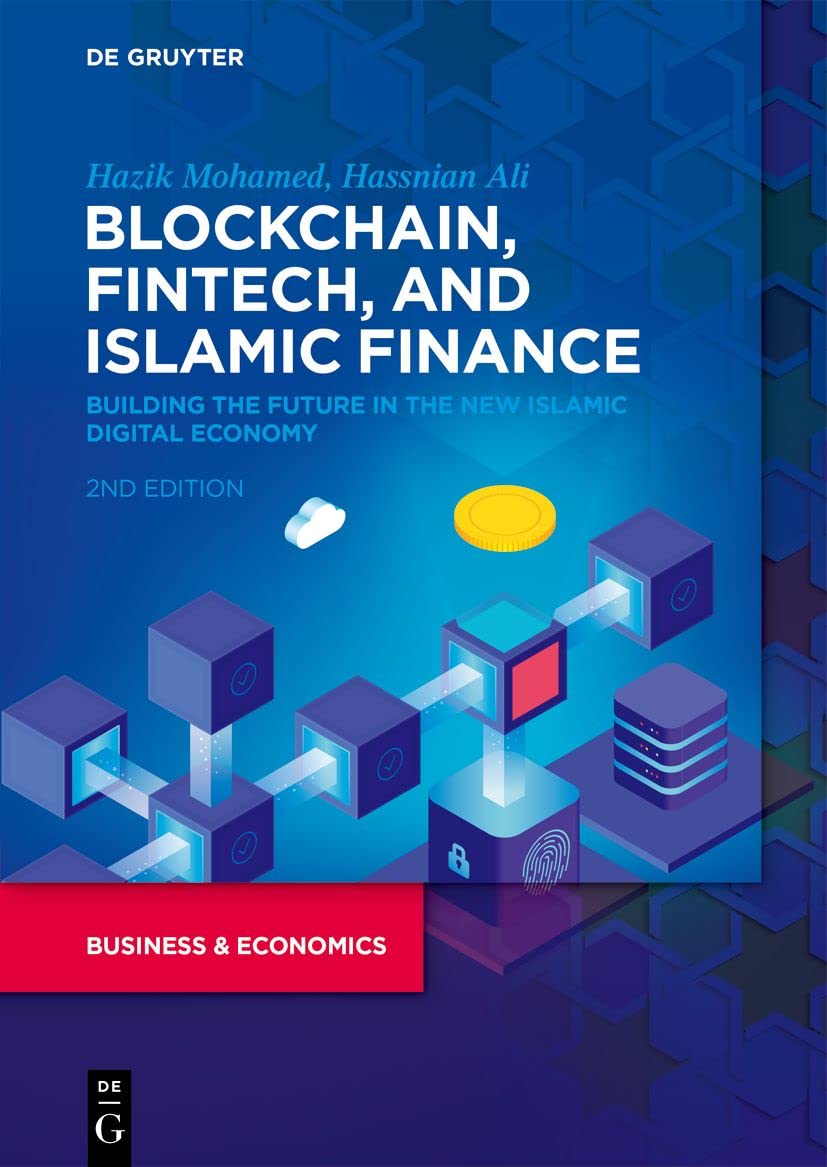
Product details:
ISBN 10: 3110745143
ISBN 13: 9783110745146
Author: Hazik Mohamed; Hassnian Ali
Blockchain Fintech and Islamic Finance Building the Future in the new Islamic Digital Economy 2nd Table of contents:
Chapter 1 Introduction
The Rationale for Financial Disruption
Ethics and Technology
Digital Transformation and Development
Shifts in Customer Behavior
Changes in Engagement and Purchasing Behaviors
Structure of the Book
Chapter 2 Fintech – Definition, History, and Global Landscape
Introduction
Definition and Concept of Fintech
Evolution of Fintech
Fintech 1.0 (1866–1987)
Fintech 2.0 (1987–2008)
Fintech 3.0
Decentralized Finance (DeFi)
Global Landscape of Fintech
Fintech Investment
Fintech in Major Regions
Cryptocurrencies, Initial Coin Offerings (ICOs) and Securitized Token Offerings (STOs)
Cryptoexchanges
e-Wallets
ICOs versus STOs
Fiqh View on Coins and Tokens
Stablecoins and Central Bank-Issued Digital Currencies
Critical Importance of CyberSecurity
Chapter 3 Importance of Fintech and its Applications
Introduction
Financial Innovation within the Financial Services Industry Perspective
Payments Industry
Crowdfunding and P2P Lending
Neo-Banking
Asset under Management
InsurTech
Fintech Within the Technological Perspective
Blockchain and Its Applications
Cloud Computing
Big Data Analysis
Internet of Things
Robo-Advisors
Artificial Intelligence
Machine Learning and Deep Learning
Quantum Computing
Chapter 4 Emergence of Islamic Fintech and its Developments
Introduction
What Is Islamic Fintech?
Alignment between Islamic Finance and Fintech
Islam and Fintech in History
Islamic Fintech Developments Around the Globe
Global Islamic Fintech Landscape and Index
Islamic Countries’ Initiatives for Islamic Fintech
Islamic Republic of Pakistan (Islamabad, Lahore)
Kingdom of Bahrain (Manama)
Kingdom of Saudi Arabia (Jeddah, Riyadh)
People’s Republic of Bangladesh
Malaysia (Kuala Lumpur)
Republic of Indonesia (Bandung, Jakarta, Surabaya, and Yogyakarta)
Republic of Kazakhstan
Republic of Turkey (Istanbul)
Sultanate of Brunei (Brunei Darussalam)
United Arab Emirates (Dubai)
United Kingdom (London)
Obstacles for Islamic Fintech
Overcoming the Digital Divide in the Islamic Digital Economy
Implications for Islamic Digital Economy
Recommendations
Chapter 5 Blockchain and the Digital Economy
Introduction
Investments in Blockchain
Trends of the Sharing Economy and the Internet of Things Era
Open Platforms
Web and Mobile (Internet of Things Devices)
Cloud-Based (Internet of Things Infrastructure)
Clearing Trades and Settlement Transactions
Widespread Use of Artificial Intelligence
Regulatory Controls
Institutional Investment
Diversity and Choices
User Defined and User Experience
Trust in the New Sharing Economy
Trust and Reciprocity in the Economy
Trust and Trustworthiness (Reciprocity) in Islam
What is Blockchain?
Blockchain as Currency and Payments
Blockchains as Databases and Public Registries
Blockchain as Smart Contracts
Blockchain as Clearing and Settlement of Securities Transactions
Reduction of Fraud
Know Your Customer
Blockchain Infrastructure
Storage
Processing
Communications
Chapter 6 Expanded Use Cases of Blockchain
Smart Contracts in Islamic Transactions
How Does a Smart Contract Work?
Automation and Enforceability
Benefits and Evolution of Blockchain-Based Smart Contracts
Applications of Smart Contracts
Capital Markets and Investment Banking
Commercial and Retail Banking
Takaful
Islamic Trade Financing
Blockchain-Based Trade Finance
Enablers to Blockchain-Based Trade Financing
Blockchain-Based Smart Contracts
Instant Payment Structures
Current Challenges
Takaful (Islamic Insurance) on the Blocks
A Model for a Blockchain-Based Takaful
Fraud Detection and Risk Mitigation
Blockchain-Based Islamic Capital Markets
Payments and Settlements
Sukuk on the Blockchain
Distributed Ledger Technology and the Over-the-Counter Market
Media Rights, Intellectual Property, and Trademark Protection
Generating Advertising Revenues
Collections and Copyright Tracking
LegalTech and the Evolution of Legal Services
Legal Research
Contract Management
Intellectual Property Management
Automation and Analytics
eDiscovery
Chapter 7 Data Risk Management For Advanced Islamic Financial Institutions
Introduction
Consumer-Related Risks
Drivers for AI-Driven Risk Management
Risks in Data Sources and Big Data Processes
Risk Management in Various Financial Processes
Conclusion
Chapter 8 Evolution of Blockchain
Introduction
Transnational Justice Applications for the Economy
Coordination and Efficiency in Markets Through Consensus-Building
Pragmatic Approach to Technology Implementation
Get it Going First
Overcoming Limitations of Technology
Technical Challenges
Business Challenges
Government Regulatory Challenges
Privacy Challenges
Chapter 9 Response of Islamic Financial Institutions
Introduction
Important Success Factors in this Era of Digitization
Better Customer Experience with Customer Centricity
Agility and Scalability
Cybersecurity Management
Challenges for Islamic Financial institutions
Regulatory Issues
Comfort Zones and Stagnation in Management
Lack of Talent
Role of Academia and Islamic Fintech Education
Collaboration Models for Islamic Financial Institutions
Islamic Fintech Is Opportunity for Islamic Financial Institutions
Collaboration Is Better than Competition
Open Platforms
Open Banking or Financial Platforms
The Financial Institution Owns the Platform
Other Ownership of the Platform
Conclusion
Chapter 10 Cash Waqf (Endowments) Management Through the Blockchain
Introduction
The Different Use Cases for Blockchain to Enhance Governance
The Essentials to Understanding Waqf
Historical Examples of Waqf Institutions and Their Contributions
Waqf Institutions and Modernization
The Distinction of Cash Waqf from Other Waqf Models
The Blockchain Cash Waqf Model Development
What the Cash Waqf System Seeks to Solve
Benefits of a Blockchainized Waqf System
Conclusion
Chapter 11 A Unified Islamic Digital Currency – The Digital Dinar
Introduction
Why a Unified Currency is Important for the Muslim World
Considerations for a Unified Currency for Islamic Countries
Evolution of Digital Currencies
The Central Bank-issued Digital Currency (CBDC)
Proposed Constructs For The Unified Islamic Digital Currency (DIGITAL DINAR)
The Aggregated Sovereign Currencies Construct
The Islamic Central Bank (ICB)
The Basket of Commodities Construct
Commodity Reserve Division (CRD)
The Fixed Price Schedule
Parameters of the Price Schedule
Benefits to the Digital Dinar Implementation
Conclusion
Index
People also search for Blockchain Fintech and Islamic Finance Building the Future in the new Islamic Digital Economy 2nd :
is blockchain the future of finance
is fintech the future of finance
is blockchain fintech
what is blockchain technology in finance
Tags:
Hazik Mohamed,Hassnian Ali,Blockchain Fintech,Islamic Finance Building
You may also like…
Religion & Spirituality - Islam
The School of Hillah and the Formation of Twelver Shi i Islamic Tradition 1st Edition Aun Hasan Ali
Uncategorized
Uncategorized
Business & Economics
Business & Economics - Professional Finance
Public Finance and Islamic Capital Markets Theory and Application Syed Aun R. Rizvi
Business & Economics - Professional Finance
Islamic Finance in Africa The Prospects for Sustainable Development 1st Edition M. K. Hassan
Uncategorized
Uncategorized

